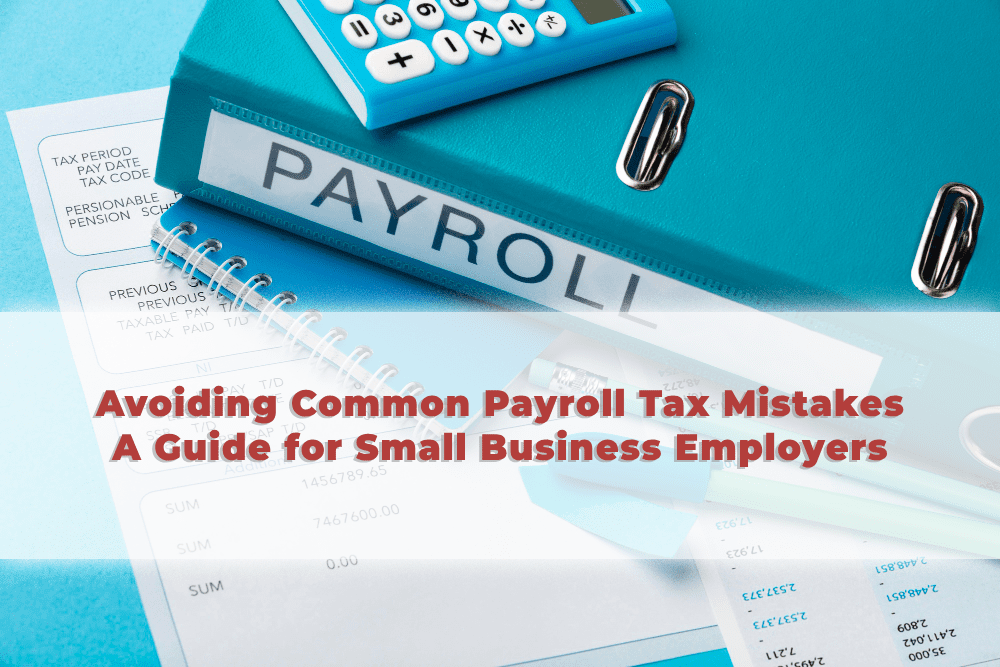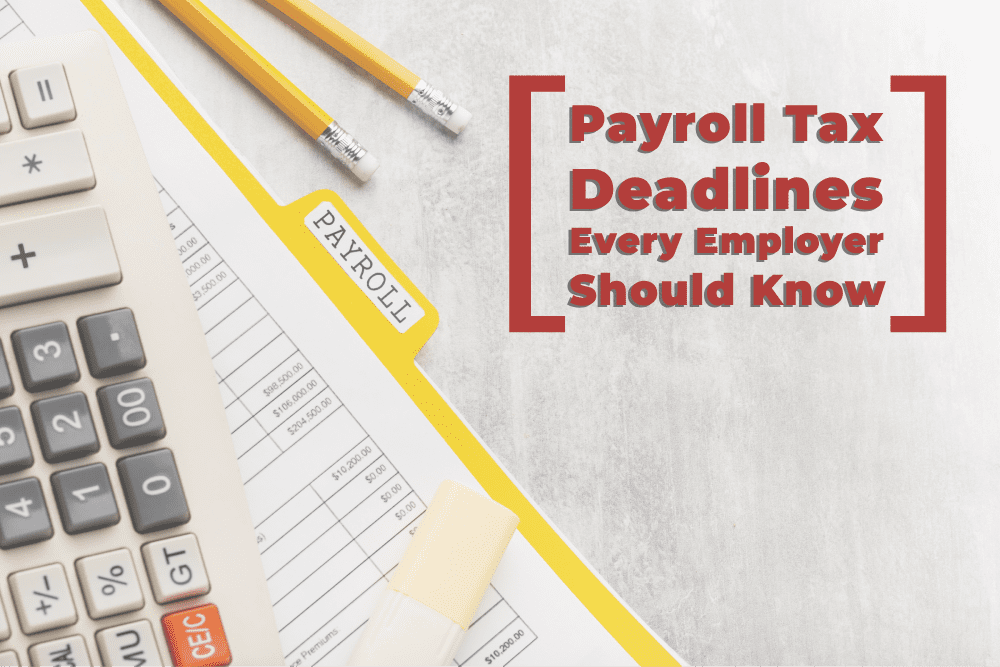Paying employees involves more than just cutting checks. As an employer, you’re responsible for adhering to specific payroll tax deadlines set by the IRS. Missing these deadlines can lead to penalties, fines, and unnecessary stress for your business. This guide will walk you through the essential “Payroll Tax Deadlines for Employers” to help you stay compliant and avoid costly mistakes.
What Are Payroll Taxes?
Payroll taxes are taxes that employers withhold from their employees’ wages and pay on behalf of their employees. These taxes include:- Federal Income Tax: Withheld based on the employee’s W-4 form.
- Social Security and Medicare Taxes (FICA): These are shared between employers and employees.
- Federal Unemployment Tax (FUTA): Paid entirely by the employer.
Employers are required to deposit these taxes and file specific forms to report them.
Key Payroll Tax Deadlines for Employers
Understanding and meeting payroll tax deadlines is crucial for avoiding penalties. Here are the primary deadlines you need to know:
1. Federal Income Tax, Social Security, and Medicare Tax Deposits
When to Deposit:
- Semiweekly Depositors: If your total payroll tax liability exceeds $50,000 for the lookback period, you’re a semiweekly depositor. You must deposit taxes:
- Wednesday for payments made on Wednesday, Thursday, or Friday.
- Friday for payments made on Saturday, Sunday, Monday, or Tuesday.
- Monthly Depositors: If your liability is $50,000 or less, deposits are due by the 15th of the following month.
- Semiweekly Depositors: If your total payroll tax liability exceeds $50,000 for the lookback period, you’re a semiweekly depositor. You must deposit taxes:
How to Deposit:
Use the Electronic Federal Tax Payment System (EFTPS).
2. Federal Unemployment Tax Act (FUTA)
- Quarterly Deadlines: FUTA deposits are due at the end of the quarter if your liability exceeds $500.
- Deadlines: April 30, July 31, October 31, and January 31.
- Annual Filing: File Form 940 by January 31 each year.
3. Quarterly Payroll Tax Forms
- Form 941: This form reports federal income tax, Social Security, and Medicare taxes withheld and is due:
- April 30
- July 31
- October 31
- January 31
4. End-of-Year Reporting
You may also like to read:
Avoiding Common Payroll Tax Mistakes: A Guide for Small Business Employers
Managing payroll taxes is a crucial part of running a small business, but mistakes can happen. These errors often lead to…
Read More

Consequences of Missing Payroll Tax Deadlines
Missing payroll tax deadlines can lead to severe penalties. Here’s what could happen:
Failure-to-Deposit Penalty: Ranges from 2% to 15%, depending on how late the deposit is.
Failure-to-File Penalty: 5% of unpaid taxes for each month the return is late, up to 25%.
Interest Charges: Accrue daily on unpaid taxes.
Staying on top of your “Payroll Tax Deadlines for Employers” not only avoids penalties but also keeps your business running smoothly.
Tips to Stay Compliant
Here are practical tips to ensure you meet all payroll tax deadlines:
Use Payroll Software: Automate calculations and reminders for deposits and filings.
Hire a Professional: Consider outsourcing payroll to an accounting firm.
Set Calendar Alerts: Use digital tools to schedule reminders for key dates.
Review IRS Updates: Stay informed about changes to payroll tax rules.
Final Thoughts
Payroll tax compliance may seem daunting, but understanding and meeting the “Payroll Tax Deadlines for Employers” will save you from costly penalties and maintain trust with your employees. Whether you’re a seasoned employer or new to managing payroll, staying organized and seeking professional guidance can make all the difference.
By following this guide and utilizing the recommended resources, you can streamline your payroll processes and focus on growing your business.




